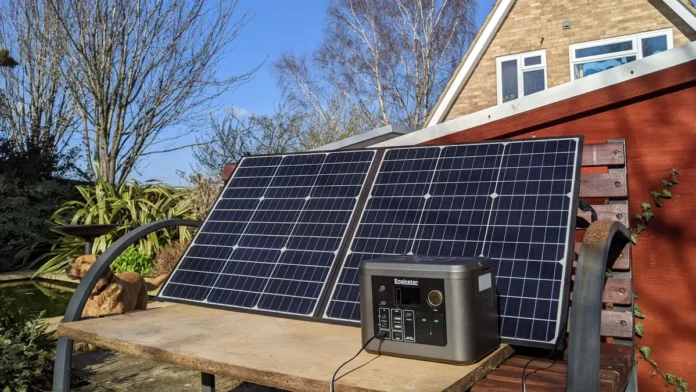If you’re a student, you may well live in your university accommodation. You may feel you have little control over your environmental impact other than doing what typical recycling you can.
But actually, there’s still a lot you can do to reduce environmental harm, even if you live on campus. You can still pursue an actively sustainable lifestyle without disrupting your living conditions. We wouldn’t want to disrupt the dynamic between you and your housemates. Granted, your methods may be a touch more obscure than the obvious tactics, but you’re sure to become kinder to your planet.
Sustainability refers to the ability to meet the needs of the present without compromising the ability of future generations to meet their own needs. It is important for students to live sustainably because their individual actions can have a significant impact on the environment. Small changes, such as conserving energy and reducing waste, can help to reduce greenhouse gas emissions and preserve natural resources for the future.
So, let’s look at six ways to start living more sustainably on campus.
1. Charge Up With Renewable Power

Sourcing your electricity from renewable sources will make a huge difference to your carbon footprint. Solar is a popular choice, emitting no fumes, noise, or disruptions.
Sure, you might be thinking, well, my rent covers my utility bills when I pay my accommodation providers, so how exactly am I going to go solar?
Picking a portable power station is easy—emphasis on portable. With a PPS, you can store your clean energy for private use without breaking your tenancy agreement. Plus, you can add solar panels and create a whole setup to harvest solar energy. Pop a solar panel outside your window, and let the accompanying solar generator store all that green power.
Use your new electricity to power your PC or any other appliance you keep in your bedroom. Your chargers and plugs fit right into the side of the generator. You could even use it to charge your phone. Some solar power generators are designed for that exact purpose. Think of the essays you could write, utterly eco-friendly essays.
2. Energy Conservation
There are many simple steps that students can take to conserve energy in their dorm rooms. One easy way to save energy is to use energy-efficient appliances, such as LED light bulbs and Energy Star-certified electronics. It is also essential to turn off lights and electronics when they are not in use, as standby power can account for a significant portion of a household’s energy consumption.
In addition to conserving energy in their dorm rooms, students can also reduce their carbon emissions by using public transportation, carpooling, or biking instead of driving alone. These alternatives to single-occupancy vehicle travel can help to reduce traffic congestion and improve air quality in the local community.
3. Replace Fast Fashion

You’re a student, and you don’t have a ton of expendable income. But, with all these societies, it’s hard not to feel pressured into buying new clothes for every night out.
When as little as 1% of clothing is ever recycled, and the fashion industry is one of the most wasteful in the world, it’s time to tackle this huge issue. The current system urges people to follow fleeting trends, resulting in consumers wearing clothing sometimes on a few occasions, only for it never to see past their wardrobe again.
The answer is simple. Reuse, revamp, and re-wear. There is no shame in re-wearing an outfit you love; nobody cares that you already posted your fit on Instagram at a different event. If you want to spruce it up, take a sewing class, watch an online tutorial, and revamp that piece into something new and exciting without visiting the high street.
Buying pre-loved and used clothing is another fabulous way to add to your wardrobe, save money and save the planet all at the same time. Charity shops are seeing an increase in footfall as more people understand the importance of utilizing what we have first. News sources like The Guardian agree that pre-loved fashion is entering the mainstream conversation.
4. Waste Reduction
Reducing waste is another important aspect of sustainability. Students can help to reduce waste by using reusable water bottles, bags, and containers instead of disposable options. Participating in campus recycling programs is another way to reduce waste and divert materials from landfills.
Proper disposal of hazardous materials, such as batteries and electronics, is also crucial to protect the environment. Many colleges and universities have programs in place to properly dispose of these materials, and students should take advantage of these resources to ensure that they are disposed of safely and responsibly.
5. Water Conservation

Water is a finite resource, and it is important to conserve it whenever possible. There are many simple ways that students can save water, such as fixing leaks and taking shorter showers. Opting for drought-resistant plants can also help to reduce water usage, and supporting water conservation efforts in the local community is another critical way to make a difference.
6. Sustainable Food Choices
The environmental impact of the food we eat is often overlooked, but the way we produce and consume food can have significant consequences for the planet. Choosing plant-based or locally-grown options can help to reduce greenhouse gas emissions and support the local economy.
Planning meals and properly storing food can help to reduce the amount of food that is thrown away, and donating excess food to those in need is another way to make a positive impact in your surrounding area.
7. Take the Step
Sustainability is an important consideration for all of us, and students have the power to make a significant difference through their individual actions. By conserving energy, reducing waste, conserving water, and making other sustainable choices, students can help to preserve natural resources and protect the environment for future generations.
Working towards a greener future isn’t an individual’s responsibility; it’s everyone’s responsibility. Take the leap to become more eco-friendly today!









